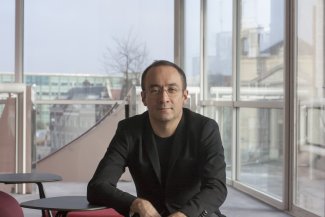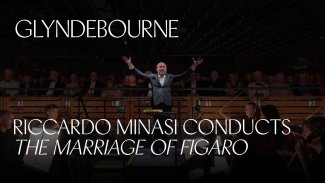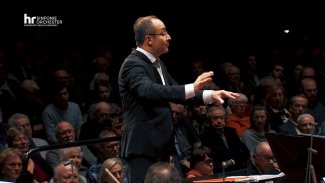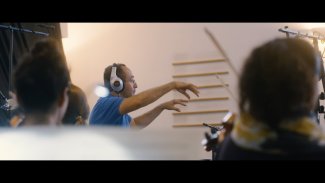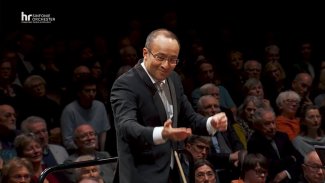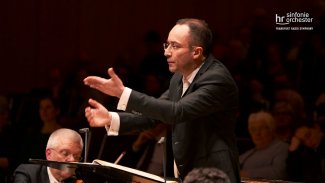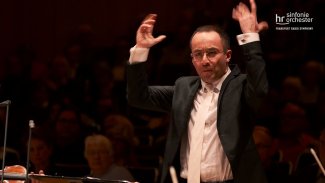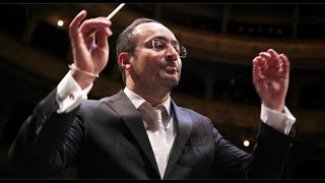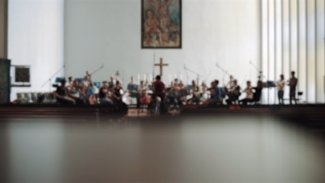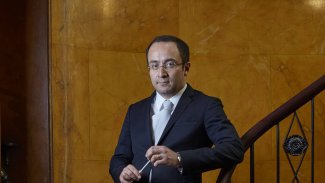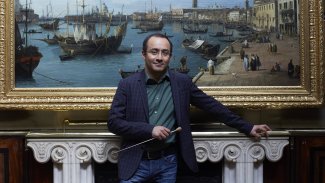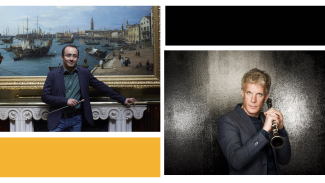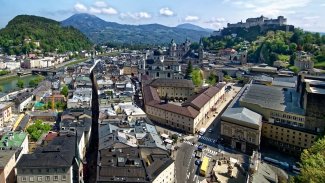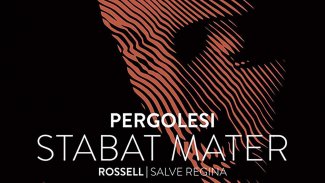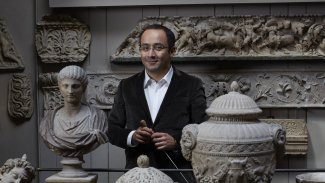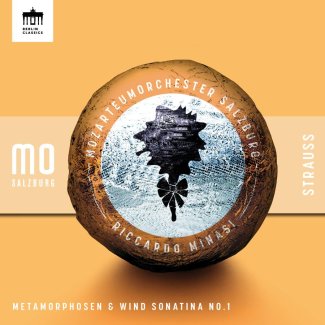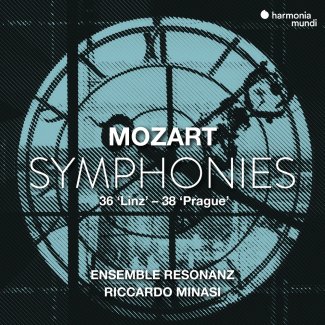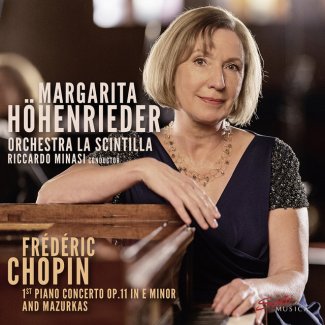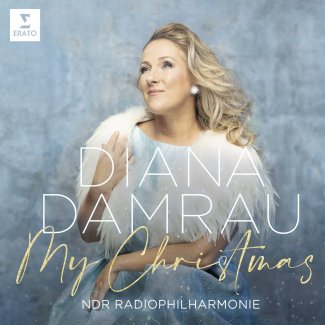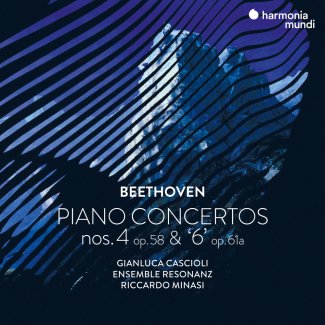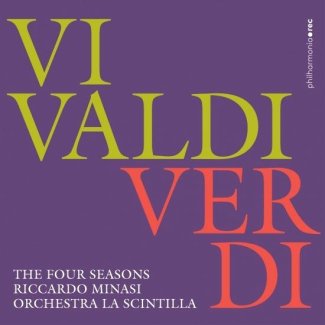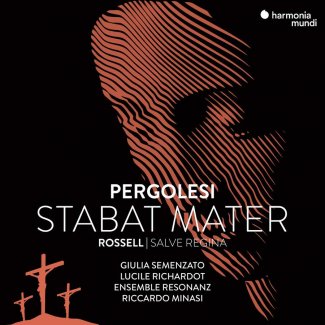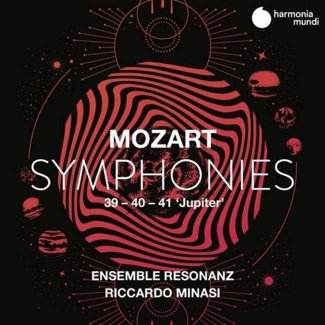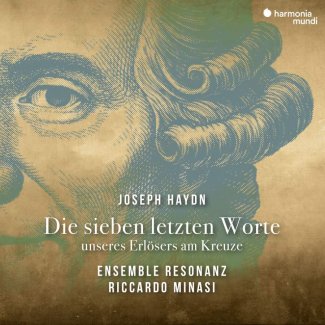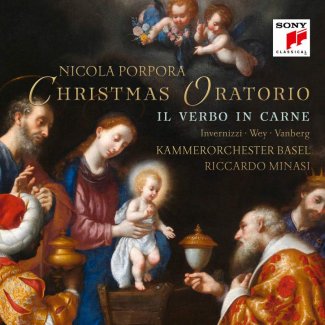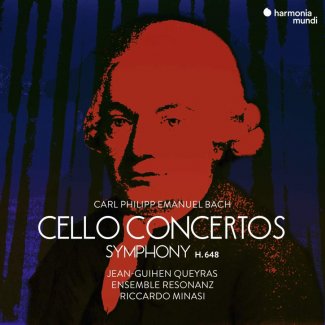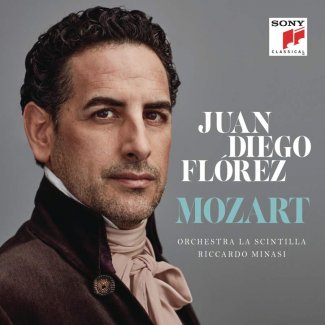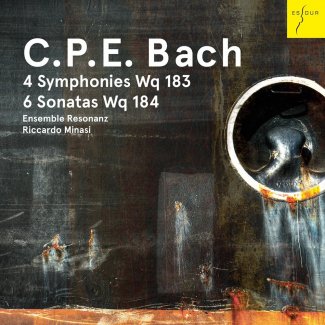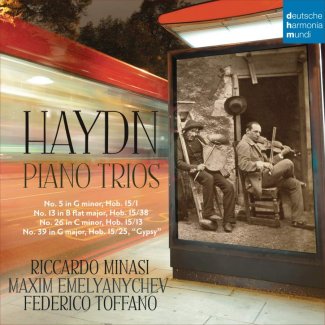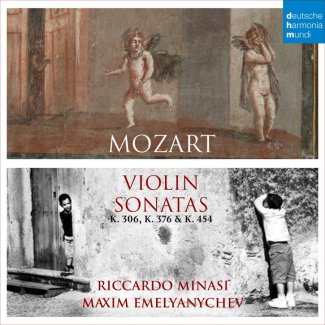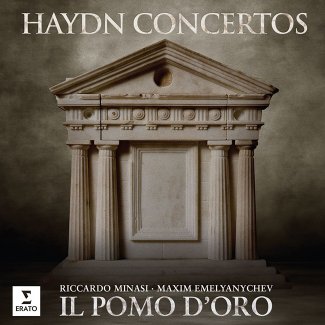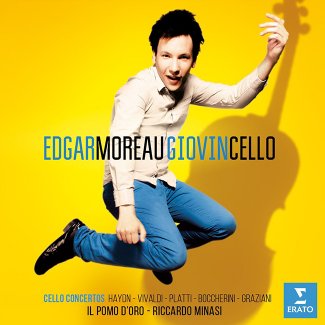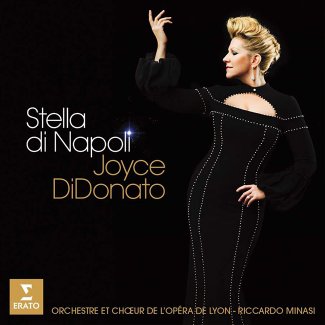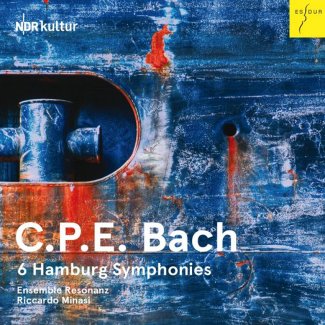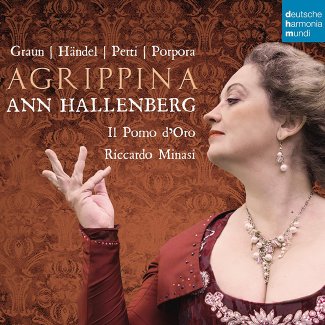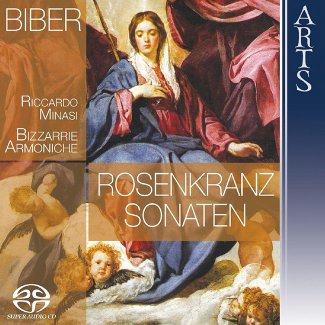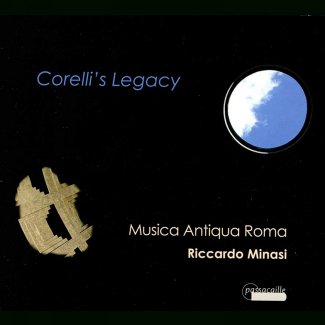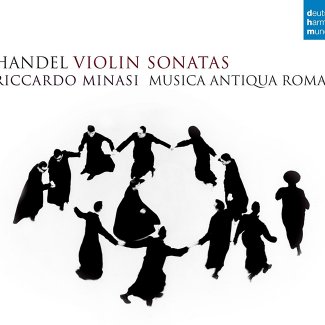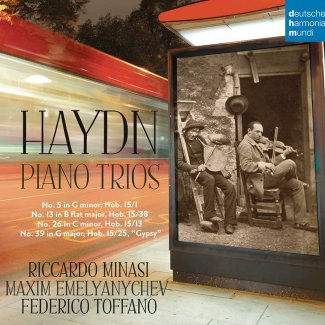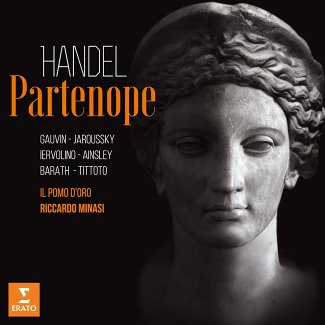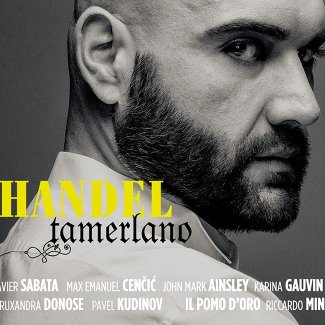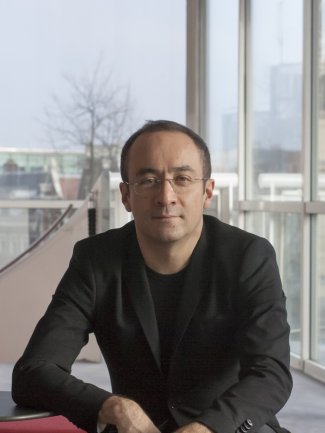
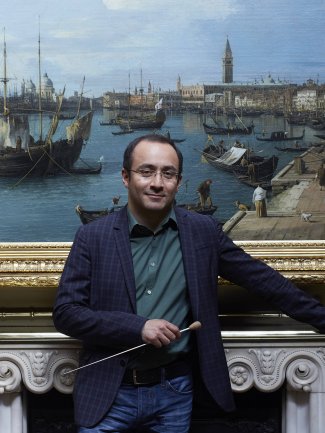
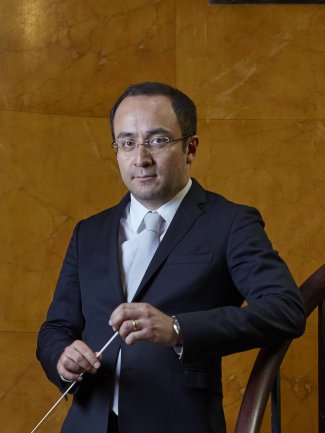
Riccardo Minasi
“Riccardo Minasi’s conducting is second to none … This is one of the great Handel recordings and very highly recommended.”
(Guardian)
Principal Guest Conductor: Ensemble Resonanz
Artistic Director: La Scintilla
Italian conductor Riccardo Minasi currently serves as Principal Guest Conductor of Ensemble Resonanz who are resident at Hamburg’s Elbphilharmonie, and Artistic Director of Orchestra La Scintilla at the Zurich Opera House, positions he has held since 2022. His previous appointments include co-founder and conductor of Il Pomo d’Oro from 2011 to 2016, Chief Conductor of the Salzburg Mozarteum Orchestra from 2017 to 2022, and Music Director of Teatro Carlo Felice in Genoa from 2022 to 2025.
In the 2025/26 season, Minasi is Artist in Residence at Hamburg’s Elbphilharmonie where he conducts four programmes with Ensemble Resonanz, including a concertante performance of Bellini’s I Capuleti e i Montecchi and Haydn’s The Seven Last Words of Christ. He also performs in Hamburg with Die Deutsche Kammerphilharmonie Bremen as part of his European tour with Beatrice Rana, followed by concerts in South America alongside James Ehnes.
Other highlights of the season include his first appearances with the Munich Philharmonic Orchestra, Orchestre Philharmonique de Radio France, Luxembourg Philharmonic Orchestra, SWR Symphonieorchester, BBC Philharmonic Orchestra, Scottish Chamber Orchestra and Dresdner Philharmonie with Martin Fröst. He also leads Mahler Chamber Orchestra in Mahler’s Symphony No.3 with Marianne Crebassa in Essen, Dortmund and Köln and two symphonic programmes with the Western Australian Symphony Orchestra and Queensland Symphony Orchestra.
See more
Following his concert with Royal Concertgebouw Orchestra last season with Bach’s St Matthew’s Passion, Minasi returns to Accademie Nazionale de Santa Cecilia to perform the same work at Easter. Additional returns include engagements with Gurzenich Orchester Cologne and Tokyo Metropolitan Symphony Orchestra with Sayaka Shoji. Recent highlights include performances with Berliner Philharmoniker, Staatskapelle Dresden (ZDF Advent concert), Frankfurt Radio Symphony Orchestra and Swedish Radio Symphony Orchestra.
His ongoing collaboration with Ensemble Resonanz takes him to Beethovenfest Bonn, Kölner Philharmonie and Concertgebouw Amsterdam and their 2024 BBC Proms debut was met with critical acclaim. Minasi returned to the BBC Proms in summer 2025 with the Orchestra of the Age of Enlightenment and the new production of Mozart’s Le Nozze di Figaro, previously staged at Glyndebourne.
Past opera performances includes Die Zauberflöte, Le nozze di Figaro and Rodelinda at the Dutch National Opera; Dialogue des Carmélites and Don Giovanni at Palau de les Arts Reina Sofía; Le nozze di Figaro and Così fan tutte for Glyndebourne Festival Opera; The Turn of the Screw, Idomeneo, Cenerentola, Beatrice di Tenda and Norma at the Teatro Carlo Felice in Genoa; Les Pêcheurs de Perles for Salzburger Festspiele; Così fan tutte, Die Entführung aus dem Serail, Turco in Italia and Orlando Paladino for Opernhaus Zürich; Le nozze di Figaro, Iphigenie en Tauride, Alcina and Agrippina for Hamburg State Opera and Carmen for Opéra National de Lyon.
Riccardo Minasi has a wealth of recording experience with the world’s top artists. In 2016 alone, he appeared on four Echo Klassik award-winning albums and most recently his Harmonia Mundi recordings with Ensemble Resonanz of Joseph Haydn’s The Seven Last Words of Christ on the Cross (2018), the C.P.E. Bach’s Cello Concertos (2019), and the Antonín Kraft’s Cello Concerto with Jean-Guihen Queyras (2024) were awarded the Diapason d’Or de l’Année. His last album with Ensemble Resonanz, Mozart: Haffner-Akademie, was released in April 2025.
Minasi’s performances are characterised by their musicological integrity. He has acted as a historical advisor for the Orchestre symphonique de Montréal. Minasi was curator and editor with Maurizio Biondi of the 2016 Bärenreiter critical edition of Bellini’s Norma, a piece he later performed with Ensemble Resonanz in Hamburg, Köln and at Teatro Carlo Felice, following the great success of the production at the Festival d’Aix-en-Provence in 2022.
Contacts
Jasper Parrott Executive Chairman HP Group & Associated Companies Gemma Chester Administrator, Artist Relations
worldwide general management
Jasper Parrott Executive Chairman HP Group & Associated Companies Gemma Chester Administrator, Artist Relations
Gemma Chester Administrator, Artist Relations
worldwide general management
Season Highlights
Concertgebouw Amsterdam
Show more about Concertgebouw Amsterdam
JOHANN SEBASTIAN BACH: St. Matthew Passion, BWV 224
Glyndebourne Festival Opera
Show more about Glyndebourne Festival Opera
WOLFGANG AMADEUS MOZART: The Marriage of Figaro
“In the pit, Riccardo Minasi led a full-throttled reading of the score, full of vim and verve.”
“The partnership proves to be exceptional, Minasi eliciting both honed and dynamically varied timbre from the ensemble, compelling us through the opening tuttis of each of the three movements with phrase characterisation that leaps off the page and delivering an informed period performance style that ideally serves the distinctive contour of CPE Bach’s vital, bold and intoxicating melodic lines.”
“Riccardo Minasi and Ensemble Resonanz’s eagerly awaited BBC Proms debut did not disappoint. In an all-Mozart programme, they brought energy and life to the music […] Le nozze di Figaro’s overture set the tone, with immediate energy, bright tone and tight ensemble, Minasi shaping the surging lines, and a pulsing build to the climax […] A rollercoaster conclusion to a great debut Prom performance.”
“All this was conducted persuasively by Riccardo Minasi […] Not only does he have a clever way of holding back phrases where the music seems to take on a questioning or wistful tone, but he also brings the orchestral textures alive with deft accents and by highlighting often hidden inner lines. Those imaginative touches were evident in a performance of Symphony No 31 that delighted from start to finish.”
(On his recent album Pergolesi — Stabat Mater) “Nourished by their work of “resonating” old and contemporary repertoires, Riccardo Minasi and the Hamburg musicians bring an astonishingly modern light to these moving scenes. A very beautiful, very theatrical version by the gesture of the orchestra, but also thanks to the singers who dramatically embody the pain of the mother. Sometimes it feels like an opera.”
‘There was then Beethoven’s Eroica: the Mozarteum Orchestra and Riccardo Minasi delivered a Beethoven milestone.. The piled-up closing movement turned into a grandiose triumphant finale, which was rightly enthusiastically applauded for a long time.’
“Ensemble Resonazn play as freshly and surprisingly as if Mozart were a composer today. This music shakes the audience existentially. Minasi is sometimes a tamer, sometimes a dancer — neither the orchestra nor the audience can escape his energy. The small chamber orchestra has made a name for itself with this concert and new CD of Mozart’s last three symphonies.”
The best was saved for last in an account of Mozart‘s Symphony No.39 that positively fizzed with good spirits. The atmosphere crackled in a fulsome introduction to the first movement, which took on a waltz-like form, Minasi’s prowess as an opera conductor clear for all to see through his dramatic instincts and more tasteful rubato. The slow movement was perfectly judged, initially and deceptively straightforward but with stern interventions from the woodwind. These highlighted the lyricism of the main subject, once again beautifully phrased. A warmly coloured Minuet followed before the finale sprang out of the traps, violins easily handling the considerable demands placed on them in rushing scales and rapid string crossing. So good was this concert it was a shame when we entered the closing bars of the symphony, but we did so with great positivity, Mozart – and Minasi – inspiring us through their wonderful craft.
“Of course, the great players of the Mozarteum Orchestra seized every opportunity to bring their own flair to Stravinsky’s “Le Sacré du Printemps” in a magnificent and impressive manner. Starting with the thoughtfully performed entry of the solo bassoon on the sonorous viola quartet in front of the podium of the Great Festspielhaus, to the shattering eight horns, or the formidably dissonant rubbing trumpets and trombones. Minasi understood the score in detail and duly fuelled the dynamically startling dramatic accents. Fascinating, simply inspiring!”
“Riccardo Minasi has a definite affinity for Strauss… he drew sparkling sounds from the score.”
“Finally the “Haffner” Symphony KV 385 was on the plan. It was an absolute triumph: Riccardo Minasi’s instructive conducting made the opening allegro explode […][…] eventually Minasi, typically Italian, prancing and fencing with the baton as if it was a rapier, drove the Mozarteumorchester, which was in top form, through the concluding presto. “As fast as possible” is what the composer wanted – it became a complete Mozart bliss.”
“Directed by violinist Riccardo Minasi and harpsichordist Maxim Emelyanychev the performances sport a vivid character — not Rococo airs and graces, but earthy energy and truculent humour.”
“The music sparkles in this quick-witted and imaginatively embellished performance from Il pomo d’oro, conducted by Riccardo Minasi.”
“Never knowingly understated, Minasi and his musicians offered vibrant playing to underpin those gymnastics, with surging violins and thudding bass lines. But they showed a calmer, more fluid side in arias such as Hasse’s Ebbi da te la vita from Siroe, re di Persia. The instrumental contributions between arias were more than just filler: they included concertos and sonatas by little-known Neapolitan composers.”
“The symphonies continually ambush the ear, bristling with startling leaps of the imagination that resonate powerfully with Riccardo Minasi’s visceral direction. The B minor Symphony’s Presto is so incendiary that asbestos gloves might be in order…[but] playing it safe in these rollercoaster symphonies is never an option.”
